#tanzania blog
Explore tagged Tumblr posts
Note
Oh, my dear Seychelles! I've made you a handkerchief to keep yourself from constantly dripping sweat! Be safe, my friend! You are going to be an amazing knight! Keep going!
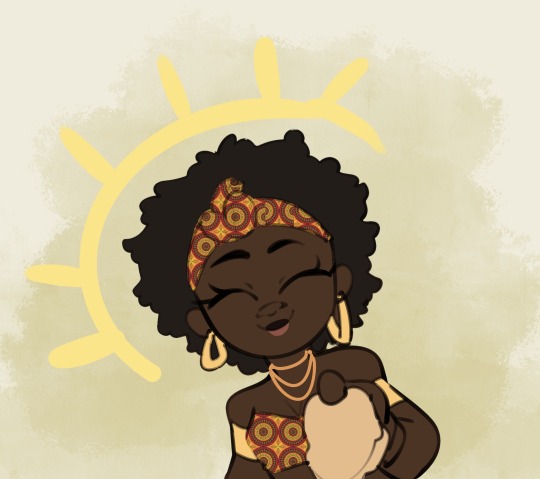
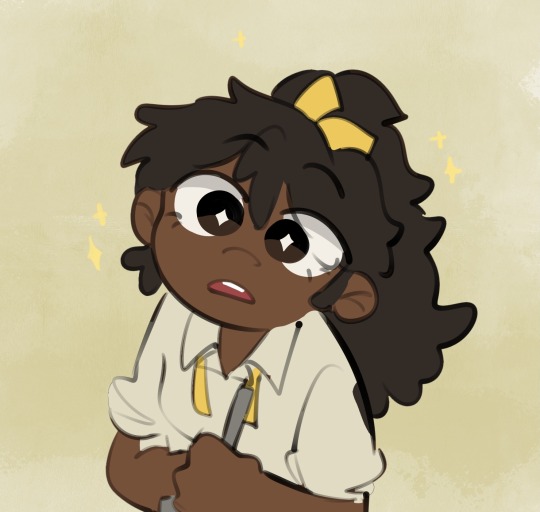
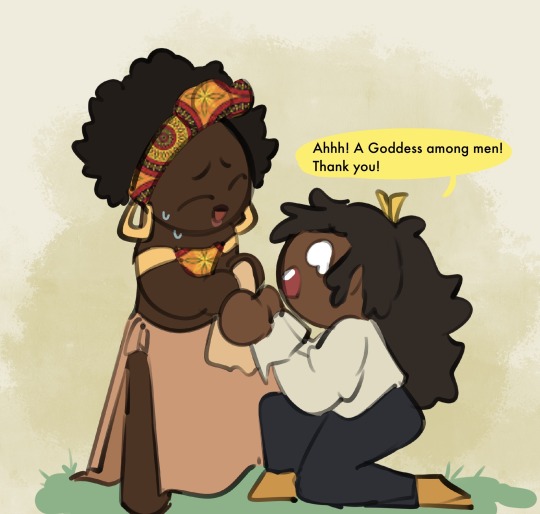
Seychelles: “ I’ll treasure this forever!”
91 notes
·
View notes
Text
The Enduring Spirit of the Maasai People
The Maasai people, with their vibrant red shukas (robes) and rich cultural traditions, are a captivating aspect of East Africa. Inhabiting parts of Kenya and northern Tanzania, they've captured the world's imagination for centuries. Let's delve into their fascinating world and explore what makes them unique.
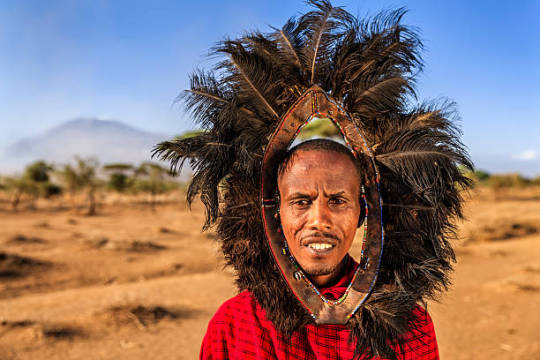
A Legacy of Pastoralism
Traditionally, the Maasai are semi-nomadic pastoralists. Their lives revolve around herding cattle, sheep, and goats. These animals are central to their way of life, providing sustenance, social status, and dowries for marriage. The Maasai have an intimate understanding of their environment, moving their herds to find the best grazing lands based on seasonal changes.
Deeply Rooted Traditions
Maasai society is complex and age-based. Men progress through a series of age sets, each with specific roles and responsibilities. Young warriors, known as Moran, are known for their bravery and elaborate beadwork. Women play a crucial role in building and managing the communities (manyattas) and raising children.
Living in Harmony with Nature
The Maasai have a deep respect for nature, believing in a strong connection between themselves, their livestock, and the land. Their traditional religion emphasizes living in balance with the environment. This respect is evident in their intricate understanding of wildlife behavior, allowing them to coexist with animals like lions and zebras.
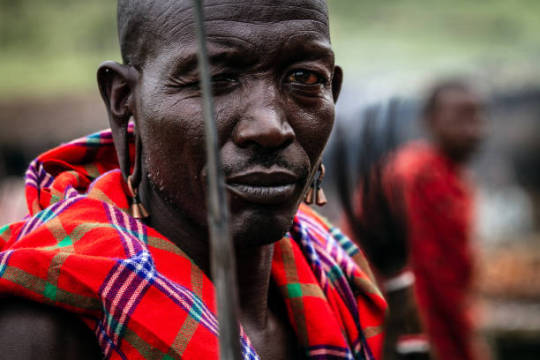
Facing the Winds of Change
The Maasai way of life faces challenges in the modern world. Encroachment on their grazing lands, drought, and the lure of a more sedentary lifestyle threaten their traditional practices. However, the Maasai are a resilient people. Many communities are adapting, engaging in ecotourism and cultural preservation efforts to secure their future.
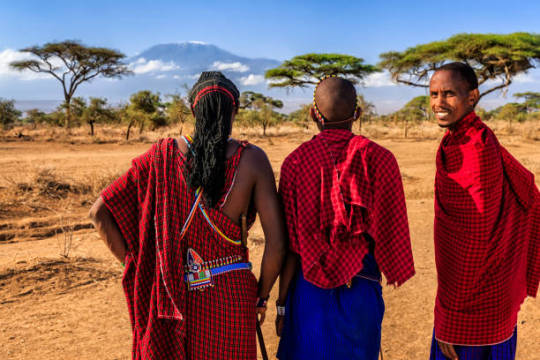
Experiencing the Maasai Culture
If you're fortunate enough to visit East Africa, consider visiting a Maasai community. Witnessing their dances, learning about their traditions, and supporting their businesses can provide a glimpse into their remarkable culture and contribute to its preservation.
The Maasai people are a testament to the power of tradition and resilience. Their enduring spirit and respect for nature are an inspiration for us all.
#ugandian knuckles#tourist#tourism#wild animals#tour#Adventure#photography#beach#safari#africa#Nairobi#Uganda#Kenya#Masai Mara#beaches#Wanderlust#east africa#Travel Photography#travel blog#tanzania#tanned#zanzibar#tangled#tanzanite#kenyan#kenya moore#beachlife#Kenya Safari#Nairob#travel
3 notes
·
View notes
Text
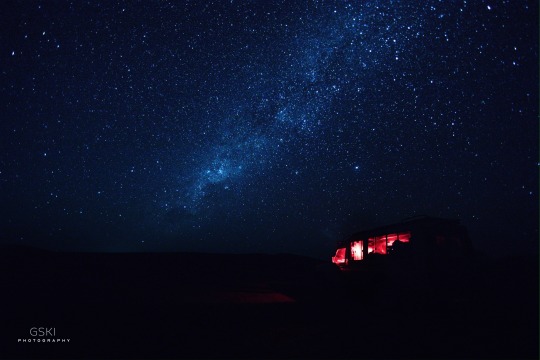
✨ Stargazing ✨
@gskiphotography
📍South Horr, Marsabit County, Kenya
#camera#istock#travelmagazine#travelphotography#travellife#africa#landscapephotography#stars#stargazing#night#nightsky#tanzania#camping#vanlife#road trip#photography#originalphotographycollective#travel photo blog#travel photographer#sky photography#sky photoset#timelapse#nature beauty#beauty#travelblogger#travelafrica#Kenya#traveller#camper#bettertogether
6 notes
·
View notes
Text
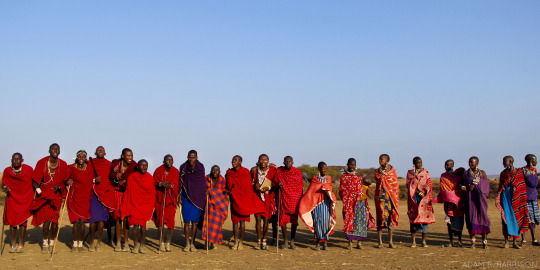
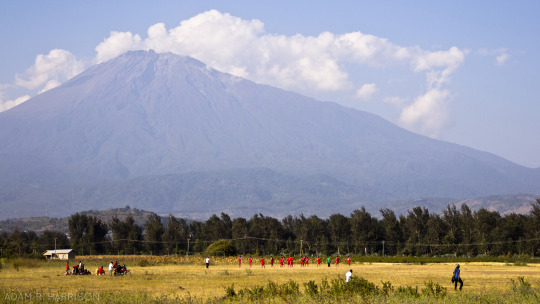
Harri's Travel Photography // Kenya + Tanzania // September 2013
www.adamrharrison.com
#kenya#tanzania#amboseli#kilimanjaro#mount kilimanjaro#masai mara#travel#africa#east africa#traveling#traveller#photography#photographer#travel photography#travel photos#travel pics#travel photo blog#toronto photographer#safari#kenya safari#tanzania safari
3 notes
·
View notes
Text
Top 15 Tanzania Safari Locations: A Guide for Wildlife Enthusiasts
Plan your dream safari with my list of the top 15 safari locations in Tanzania. Discover the stunning wildlife and landscapes that make Tanzania a top safari destination.
The continent of Africa is renowned for its spectacular wildlife. Undoubtedly, one of the most popular safari spots in Africa is the breathtaking country of Tanzania. If you are starting to plan your once-in-a-lifetime safari adventure in Tanzania, then you are in luck. In this article, I will outline the top 15 Tanzania safari locations for you to review. Tanzania is renowned for its stunning…
#african safari best places to go#safari tanzania big five#safari tanzania katavi#tanzania best safari lodges#tanzania safari animals#tanzania safari animals list#tanzania safari best#tanzania safari best months#tanzania safari best time#tanzania safari big 5#tanzania safari blog#tanzania safari crater#tanzania safari destinations#tanzania safari experience#tanzania safari from arusha#tanzania safari from dar es salaam#tanzania safari from zanzibar#tanzania safari guide#tanzania safari itinerary#tanzania safari kilimanjaro#tanzania safari map#tanzania safari migration#tanzania safari national park#tanzania safari ngorongoro crater#tanzania safari parks#tanzania safari parks map#tanzania safari places#tanzania safari serengeti
0 notes
Text
Secrets We Keep by Valeriya Goffe | #BookReview #WomensFiction #Contemporary #Giveaway $25 Gift Card @GoddessFish @WildRosePress @GoffeValeria @valgoffe_author
Secrets We Keep by Valeriya Goffe | #BookReview #WomensFiction #Contemporary #Giveaway $25 Gift Card @GoddessFish @WildRosePress @GoffeValeria @valgoffe_author Valeriya Goffe takes us on a wild journey through Anna's life. It's not just about her career or love troubles; it's a deep dive into pre-war Ukraine, a place brimming with secrets and untold stories. And let me tell you, it's emotional. You'll laugh, cry, and probably yell at Anna to make better choices (we've all been there).
Secrets We Keep by Valeriya Goffe | #BookReview #WomensFiction #Contemporary #Giveaway $25 Gift Card @GoddessFish @WildRosePress @GoffeValeria @valgoffe_author A book blog tour from Goddess Fish Promotions. Thank you to the author, publisher, and Marianne & Judy at Goddess Fish for providing me with the information for this tour. Book Details ~~~~~~~~~~~~~~~~~~~~ Excerpt from Secrets We…

View On WordPress
#2024 Book Reviews#Book Blog Tours#book review#contemporary fiction#Goddess Fish Promotions#Tanzania#The Wild Rose Press#Ukraine#women&039;s fiction
0 notes
Text
What is the best month for safari in Tanzania?

Tour Operator: Dav Safaris Website: www.davsafaris.com Email: [email protected] Tel: +256701412430 | +256757795781
What is the best month for safari in Tanzania?
What is the best month for safari in Tanzania? Going on Tanzania luxury safaris is a dream for nature enthusiasts and adventure seekers eager to immerse themselves in the captivating beauty of the African wilderness. The ideal timing for Tanzania wildlife safaris largely hinges on seasonal fluctuations and the unique wildlife events that unfold throughout the year. A prime period for indulging in Tanzania luxury safaris is during the dry season, spanning from June to October. This timeframe witnesses wildlife congregating around water sources, offering exceptional game viewing opportunities. Moreover, this season coincides with the Great Migration in the Serengeti, a mesmerizing natural spectacle where millions of wildebeests and zebras traverse the plains in search of greener pastures.
Exploring Tanzania's Diverse Wildlife Ecosystems
Tanzania wildlife safaris present an opportunity to delve into the diverse ecosystems and abundant wildlife that thrive in this East African nation. From the iconic Serengeti National Park to the majestic Ngorongoro Crater and the pristine beaches of Zanzibar, Tanzania showcases a rich tapestry of landscapes and habitats brimming with wildlife. Renowned for its diverse and plentiful wildlife, Tanzania stands out as a top destination for luxury safaris in Africa. The Serengeti National Park holds a special place among wildlife enthusiasts, famous for its expansive plains and the annual Great Migration of millions of wildebeests and zebras. Luxury safaris in the Serengeti offer guests a front-row seat to this extraordinary natural phenomenon, along with opportunities to spot the Big Five and other iconic African wildlife in their natural habitat. Exclusive lodges and tented camps within the park ensure unparalleled comfort and service amidst the stunning Serengeti landscapes.
Must-Visit Tanzania Wildlife Attractions
Another must-visit wildlife attraction during Tanzania luxury safaris is the Ngorongoro Crater, a UNESCO World Heritage Site and one of the world's largest intact volcanic calderas. The crater harbors a high density of wildlife, including lions, elephants, hippos, and various bird species. Luxury accommodations perched on the rim of the Ngorongoro Crater offer breathtaking views of the crater floor, providing easy access to game drives within this unique ecosystem. Travelers can relish the thrill of encountering wildlife up close while enjoying the comfort and sophistication of lodges overlooking this natural wonder.
Tarangire National Park Tanzania wildlife safaris
For travelers seeking a more off-the-beaten-path Tanzania wildlife experience, Tarangire National Park in Tanzania stands out as a hidden gem. Known for its substantial elephant population and diverse birdlife, luxury safaris in Tarangire offer guests an opportunity to explore the park's ancient baobab trees, seasonal swamps, and winding riverbeds teeming with wildlife. Exclusive camps and lodges in Tarangire provide a secluded and intimate setting for guests to unwind after exhilarating game drives. With its unique landscapes and rich biodiversity, Tarangire National Park offers a serene and immersive Tanzania wildlife safari experience in the heart of the African wilderness.
Packing Essentials for Tanzania Luxury Safaris
When preparing for Tanzania luxury safaris, packing wisely is crucial to ensure a comfortable and enjoyable experience in the African wilderness. Opt for lightweight, breathable fabrics like cotton and linen to combat the warm temperatures typically encountered in Tanzania. Long-sleeved shirts and pants can offer protection against the sun and insect bites, especially during early morning and evening game drives. Don't forget to include a wide-brimmed hat, sunglasses, and sunscreen to shield against the strong African sun while out in the savannah. Strong walking shoes or hiking boots are essential for bushwalks and exploring rugged terrain, while comfortable sandals can come in handy for relaxing at the lodge or walking around camp. Binoculars are a must-have for spotting wildlife from a distance, enhancing the safari experience by allowing guests to observe animals up close.
Traveling for Tanzania Luxury Safaris
Travelers from the US and Europe have several options to reach for unforgettable Tanzania wildlife safaris. Direct flights from major US cities like New York and Atlanta to Kilimanjaro International Airport or Julius Nyerere International Airport in Dar es Salaam provide convenient access to Tanzania. European travelers can also find direct flights from cities such as London, Amsterdam, and Paris to these airports. Alternatively, connecting flights through hubs like Dubai or Doha offer additional routes to reach Tanzania for wildlife safaris, ensuring a seamless journey to this captivating destination.
Luxury Accommodation Options for Tanzania Luxury Safaris
Tanzania boasts an array of opulent lodges, tented camps, and safari resorts catering to discerning guests seeking a lavish retreat during their Tanzania luxury safaris. These accommodations offer exclusive experiences amidst the natural beauty of the Serengeti, Tarangire, and Manyara national parks, where guests can indulge in gourmet dining, spa treatments, and personalized services. From lavish tented suites with private decks overlooking the savannah to luxurious lodges with infinity pools and panoramic views, Tanzania luxury safaris redefine the concept of upscale wilderness retreats.
0 notes
Text
The best thing about a @ChrisBohjalian book is that you never quite know what you will get. Each one is unique – setting, characters, era, plot. The Lioness takes us to Tanzania and an African safari. From African politics and history to Hollywood drama, from relationships to breakups to betrayals, this book weaves together a story in a way I have come to expect from Chris Bohjalian. I can't wait to see what he comes up with next.
#TheLioness reviewed for #NetGalley.
0 notes
Text
Jacada Travel for your luxury trip to Latin America
Jacada Travel creates bespoke luxury trips to South America and Central America. Our travel experts design your perfect itinerary, with the best accommodation, exclusive tours and a local guide who shares your interests, and we sort out all the detail.
Latin America is incredibly diverse, and is home to some of the most awe-inspiring landscapes you’ll experience. From vibrant cities bursting with history and culture, to epic natural phenomenons like the Bolivian salt flats, you’ll create memories to last a lifetime no matter where you visit in the continent.

In fact, Latin America holds a special place in Jacada’s heart, as it was in Brazil that our founder, Alex Malcolm, first experienced the unique travel experience that inspired our entire ethos.

Enjoy a warm welcome, relax and experience the true adventure of Latin America. Whatever you want your trip to include, at Jacada Travel we’ll create a bespoke trip just for you. Choose experiences and activities in Peru, The Galápagos, Argentina, Chile, Costa Rica, Belize, Bolivia, Brazil, Ecuador, Mexico and Uruguay.
If you have more time, why not try our Grand Tours of Latin America, taking in more of the region in one incredible trip.
For more information on Tanzania Tour click here
0 notes
Text
African Rhythms: 18 Jams That Formed the Soundtrack of My Recent Visit to East Africa
(September 22, 2023). In recent years, the infectious rhythms of Afrobeats have transcended borders and made heads bop and butts bounce around the world, including here in America. (Pictured above are Nigerian artists Burna Boy, Ayra Starr and Omah Lay.) In fact, the transnational sound, whose origins lie in the African continent—particularly in western countries like Nigeria and Ghana—is so…

View On WordPress
1 note
·
View note
Text
10 Reasons to Visit This Tropical Paradise
Discover Zanzibar
Zanzibar, an archipelago off the coast of Tanzania, is a tropical paradise renowned for its pristine beaches, rich history, and vibrant culture. Known as the "Spice Island," Zanzibar offers an enchanting blend of natural beauty and cultural treasures, making it a must-visit destination for travelers.
1. Pristine Beaches
Zanzibar is famous for its white sandy beaches and crystal-clear turquoise waters. These idyllic beaches are perfect for sunbathing, swimming, and a variety of water sports. Whether you're looking to relax on the shore or dive into adventure, Zanzibar's beaches cater to every preference.
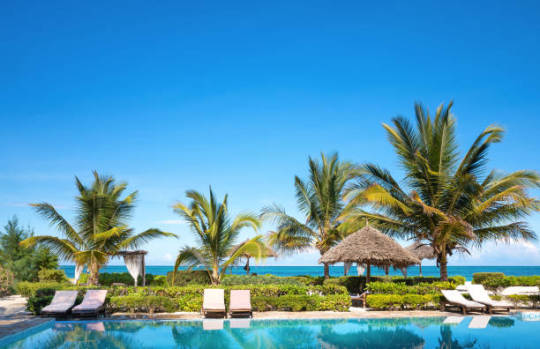
2. Diverse Marine Life
The waters surrounding Zanzibar are teeming with diverse marine life, making it a haven for snorkeling and diving enthusiasts. Explore vibrant coral reefs and encounter dolphins, sea turtles, and exotic fish species in their natural habitat, providing an unforgettable underwater experience.

3. Rich History and Culture
Stone Town, a UNESCO World Heritage Site, is the cultural heart of Zanzibar. Wander through its narrow streets and historic buildings, where a blend of African, Arab, Indian, and European influences is evident in the architecture, cuisine, and traditions. Stone Town's rich history and cultural significance offer a fascinating glimpse into Zanzibar's past.
4. Spice Tours
Zanzibar's nickname, the "Spice Island," is well-deserved. Embark on a spice tour to discover the island's famous spice plantations, where you can learn about and taste cloves, cinnamon, vanilla, and more. These tours provide insight into Zanzibar's spice trade history and its impact on the local culture and economy.
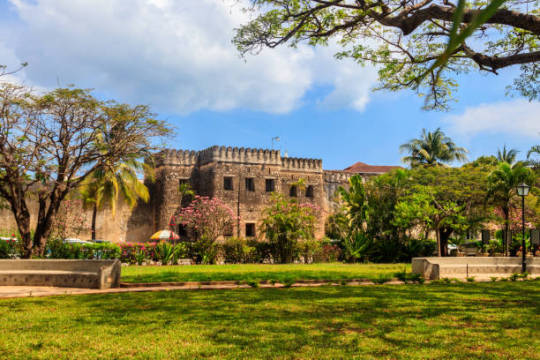
5. Unique Wildlife
Jozani Chwaka Bay National Park is home to the rare red colobus monkey, a species unique to Zanzibar. The park also offers opportunities to see diverse bird species and other wildlife in their natural habitats, making it a great destination for nature lovers and wildlife enthusiasts.
6. Water Activities
For adventure seekers, Zanzibar offers a range of thrilling water activities. Sail along the coast on traditional dhows, try kite surfing and windsurfing, or embark on a deep-sea fishing expedition. The island's coastal waters provide the perfect playground for both relaxation and excitement.

7. Local Cuisine
Zanzibar's cuisine is a delightful fusion of flavors, featuring fresh seafood dishes, tropical fruits, and aromatic spices. Savor traditional Zanzibari dishes like pilau rice, biryani, and seafood curries, and indulge in the island's vibrant food scene.
8. Relaxation and Wellness
Zanzibar's luxurious resorts and spas offer rejuvenating treatments and wellness programs. Enjoy yoga retreats and meditation sessions in serene natural surroundings, providing a perfect escape for those seeking relaxation and wellness.
9. Vibrant Markets
Explore Zanzibar's bustling markets, where you can find local crafts, textiles, and souvenirs. Interact with friendly locals and immerse yourself in the vibrant atmosphere, experiencing the island's lively market culture firsthand.
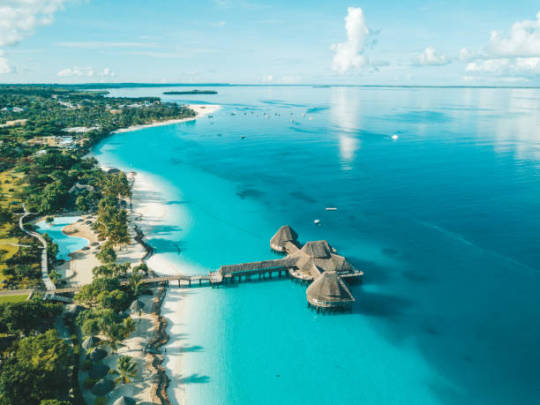
10. Sunset Views
End your day in Zanzibar with spectacular sunsets over the Indian Ocean. The breathtaking views provide a perfect backdrop for relaxation and reflection, offering a serene conclusion to a day of exploration.
Conclusion
Zanzibar is a tropical paradise that offers something for every traveler. From its pristine beaches and diverse marine life to its rich history and vibrant culture,https://plentifuladventures.com/ an unforgettable experience. Whether you're seeking relaxation, adventure, or cultural immersion, Zanzibar invites you to discover its beauty and charm. Plan your visit and experience the magic of this enchanting island destination.

#wild animals#ugandian knuckles#tourism#tourist#tour#the eras tour#Adventure#photography#beach#safari#africa#Nairobi#Uganda#Kenya#Masai Mara#beaches#Wanderlust#east africa#Travel Photography#travel blog#tanzania#tanned#zanzibar#tangled#tanzanite#kenyan#kenya moore#beachlife#Kenya Safari#travel
2 notes
·
View notes
Text
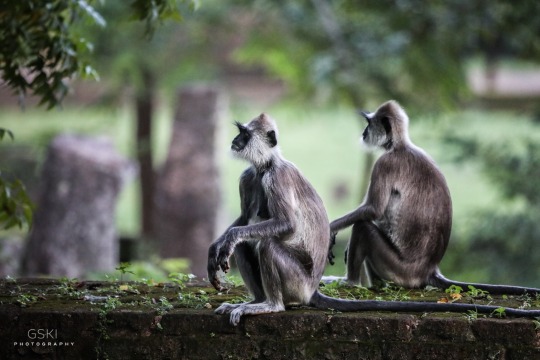
Gray Langurs & Toque Macaque

@gskiphotography
Mirror or no mirror! I present to you the Grey Langurs and Toque Macaque - Old World monkeys endemic to Sri Lanka.
How much do they resemble us, our behaviours!
Their species is listed as Endangered by the International Union for the Conservation of Nature due to habitat destruction and hunting, and also for the pet trade.
Check out more on my ig: https://instagram.com/gskiphotography?igshid=YmMyMTA2M2Y=
#srilanka#travelmagazine#travelphotography#travellife#africa#camera#landscapephotography#istock#tanzania#nature#nature beauty#baby monkeys#monkey island#travelblogger#wildlifephotography#wildlife#travel photographer#original photography blog#original photography on tumblr#animal of the day#human behaviour#animal behaviour#nature photographers#ancient history#ruins#conservation#endangered#beautiful animals#wild animals#travel photo blog
6 notes
·
View notes
Note
How many pink animals do you know? I need to see more pink animals. Also, I love this blog. Never stop.
Thank you kumquat xoxo.
Here are some pink animals for you...

Roseate Spoonbill (Platalea ajaja), family Threskiornithidae, order Pelicaniformes, Fort De Soto, St Petersburg, FL, USA
photograph by Joseph Placheril

Pink Robin (Petroica rodinogaster), male, family Petroicidae, SE Australia
Photograph by Jan Wegener


Mount Kaputar Pink Slug (Triboniophorus aff. graeffei), family Athoracophoridae, found only on Mt. Kaputar in NSW, Australia
ENDANGERED.
photograph by Michael Murphy | NPWS

Pink Noctuid Moth (Philareta treitschki), family Noctuidae, Turkey
photograph by Alperen YAYLA

Mwanza Flat-headed Rock Agama (Agama mwanzae), male, family Agamidae, Serengeti National Park, Tanzania
photograph by Christian Mehlführer

Western Coachwhip (Masticophis flagellum testaceus), family Colubridae, Big Bend National Park, TX, USA
photograph by NPS/J. Radford
3K notes
·
View notes
Text

Dose # 1 - Introduction
Facts about the language
It’s a Semitic language, which is a branch of languages that includes languages like Arabic, Amharic, Aramaic and Hebrew among other languages.
It has millions speakers worldwide. People usually refer to 22 countries as “the Arab world” but I personally prefer to talk about “Arabic speaking countries” since it gives a better representation of the countries that speak the language and have Arabic as one of the official languages which are 25 countries in the Western part of Asia as well as Northern Africa.
The 25 countries are: Saudi Arabia, Chad, Algeria, Comoros, Eritrea, Djibouti, Egypt, Palestine, Lebanon, Iraq, Jordan, Lebanon, Kuwait, Mauritania, Morocco, Oman, Qatar, Somalia, Sudan, Syria, Tanzania, Bahrain, Tunisia, United Arab Emirates, and Yemen.
People might want to learn for a variety of reasons, whether it is to live in an Arabic speaking country or environment, for work purposes, or for religious purposes. Muslims Arabic holds a special place since it is the language of the Holy Quran.

Variations
Since many regions speak the language. There are a lot of variation in the language which I try to summarize.
To put it simply, on one hand we have the Standard Arabic, which is the formal Arabic. The older variation of Standard Arabic is Classical Arabic, among is the Holly Quran which is the most eloquent, inimitable form of Arabic.
Here is a small post I made about MSA and Classical Arabic.
I will focus on the modern variant of Standard Arabic which is “Modern Standard Arabic”, or MSA. Nowadays, this variant is used in official correspondence, books, magazines and writings in general. It is important.
There are also dialects which are the “spoken Arabic”, each region has their own dialects but they are usually grouped per region and similarities:
Gulf dialects; Levantine dialects; Maghreb dialects; Nile Valley and Egyptian
Some dialects are not within these groups per se but they are somewhat close like Yemeni and Iraqi (which I would associate with the Gulf dialects).
I could also place Djibouti, Somalia, Mauritania and Chad in a separate category as well
These groupings over simplify the variety of the dialects but it’s to make the concept closer to understand especially for those who are not familiar with it. I spoke about dialects in a post I made a where I tried to provide an explanation for the difference in dialects, if you’re interested read it [here].
Usually, people learn Arabic to be able to speak a certain dialect, I recommend studying the standard Arabic first or at least having some sort of knowledge before delving into the dialects.
In my lessons, I will focus on Modern Standard Arabic, but I do make dialectal posts on my blog as well which can be found [here].

Arabic alphabets
Arabic is written from right to left, and the letters connect to form words. The letters are read as they are written in 99.9% of the cases, except for only very minor exceptions. It's also very phonetically consisentent, very similar to Spanish for example when comapred to English were different letters can be read differently according to the word.
Arabic has 28 letters, and because the writing connects the words together to form sentences, each letter can be written in 4 ways: the isolated form, the initial form (how it would look like if it came at the beginning of the word), medial form (how it would look like if it was in the middle of the word), and finally, the final form (how it would look like if it were at the end of the word).
However, it is important to note that not all letters connect with other letters, for example, the letters (ا / د / ذ / ر / ز / و) do not connect to each other, and only connects if the other letters in the alphabet comes before it.
The Arabic letters are simple, and many letters resemble one another, I usually refer to letters that are similar as “sisters”. The resemblance in shape doesn’t necessarily mean that the sounds are similar though.
There are two types of vowels, short vowels or harakat, and these are the diacritics or little accents that can be found on top of each letters; and long vowels or mudood which are three letters ا (which makes the sound “aah” ), و (which makes the sound of “oo” like “pool” ) and ي (which makes the sound “ee” like feel). Usually, when talking about “vowels” people are referring to the long vowels.
The vowel is twice as long as the haraka but it has the same sound.

Grammar & vocabulary
Arabic is a very well structured language, and it has a very consistent grammar, exceptions are not very common and it’s very logical.
A notable thing to note about Arabic grammar is that first of all, there are grammatical cases, like Turkish and German for example.
This means that the end of the word changes according to its role in a sentence. In the case of Arabic, the harakat of the end of the word changes depending on the place and role it plays in a sentence.
So don’t be surprised when you see the same word ending with different harakat. Because it is a language that has this grammatical case system, the sentence structure is flexible.
For example تُوتُ (berries) is the same as تُوتَ and تُوتِ . The difference here is the place in the sentence.
Another thing is that Arabic has a root system, most words have a root (most likely made up of three letters), the root has a certain meaning and all the derived words will contain the same three letters of the root as well as a certain meaning that is carried with the derivation.
For example the word كَتَبَ is the root and it means “to write”, we derive words like كَاتِب (writer or author) مَكْتُوب (written) and كِتَاب (book) and مَكْتَبَة (library). If you know the verb (root) it’ll be easy to guess the meaning of the word or have a guess on what the word is about.

Arabic letters : how are they arranged?
There are two ways that the letters in Arabic are arranged, the first one is called التَّرْتِيب الأبجَدِيُّ attartīb alʾbǧadiy. This is the old order of the letters, it was based on the order of the letters in Semetic languages, the order is also used in numbers (similar to roman numerals, how a letter can have a numerical value like (i) which is the number a).
This order is still used when making lists, for example if you’re saying point a) point b) , people are more likely to use this order.
For point c) in Arabic people will say ج) and not ت.
The letters are grouped in these words, in this same order
أبجد هوز حطي كلمن سعفص قرشت ثخذ ضظغ
التَّرْتِيبُ الهِجَائِيَ attartīb alhiǧāʾiy is an order that was later introduced. This order arranges words in the alphabet according to the similarities between the way the letters are drawn. It’s the one used when studying Arabic.
This is the order of these letters
أ ب ت ث ج ح خ د ذ ر ز س ش ص ض ط ظ ع غ ف ق ك ل م ن هـ و ي
For simplicity’s sake, I suggest focusing on the second order, but it’s good to know that it’s not the only one.
I hope this has been an interesting introduction to read!

Homework
Complete this small quiz to measure how much you understood from this lesson

Next lesson : we will study the different harakat and vowels.

27 notes
·
View notes
Text
I lived in so many places as a kid and teen, some for longer than others, and i mention a lot abt these on my blog. Still, i hv never said what i consider my homeland.
Make ur best guess and ill tell u whats correct in a day :3
Yes, most of these places i hv either lived in or am ethnically from. A few i js randomly threw in there for fun, or to confuse my long time followers (since i hv mentioned all of these at least once).
#safari is the best browser#safari posts#quiz time#!!!#this is truly a guessing game#unless ure my irl partner who rarely checks my tumblr#(hi angel btw)#or bing who probably doesnt remember bc we hate eachother#good luck pookies
20 notes
·
View notes